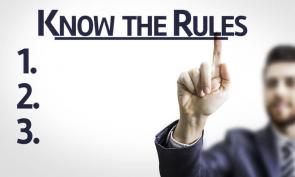
Analyzing Costs Comprehensively
As part of their due diligence evaluation, firms need to assess carefully both the start-up/acquisition costs of the ancillary business and its ongoing operating costs within the law firm's structure. Unfortunately, many planners end this analysis prematurely, making their "go /no go" decision on the basis of weighing anticipated revenues against only the acquisition and historical operating costs of the ancillary business. To fully assess the profitability of a new venture, planners also need to take into account the overhead costs of operating the business within a law firm. In our experience, most planners underestimate these overhead costs.
Note: For simplicity, this article disregards tax considerations when it assumes that a firm wants its ancillary business to show a net operating profit.
Like law firms, the vast majority of ancillary businesses are service-oriented in nature. But calculating and comparing overhead costs can be tricky, since many ancillary businesses have -- and need -- a very different cost structure from that of the law firm.
Overhead Differences and Profitability
Typically a law firm tries to integrate an ancillary business into the firm's operations to achieve economies of scale, which may be real or imagined. When overhead cost structures of the two organizations differ greatly, however, such consolidation can result in red ink even if the ancillary business would be profitable on a stand-alone basis.
For example, a small independent lobbying practice can have a profit margin of up to 90%. This margin can shrink considerably if the lobbying operation is acquired by a law firm and then a portion of the law firm's overhead costs is allocated to it.
Following are some major components of a law firm's overhead structure that may differ significantly from those of an ancillary business in stand-alone mode:
Office Space -- For many ancillary businesses, an important key to profitability is that they require only low profile, inexpensive office space. To move them into a law firm's relatively sophisticated, expensive office space and then charge them accordingly, even at a fair internal charge rate, may dramatically alter their profitability.
Technology -- In law firms that seek to provide fully integrated and seamless services in a "one-firm" environment, an acquired business is often appended to the firm's technology platform. The firm's standard platform, however, may include overly sophisticated hardware or software that are not needed by the ancillary business. For example, an expertise-based ancillary business may have very little use for the firm's practice-oriented knowledge-management systems. The associated internal charges for these unnecessary services may materially impact the financial position of the ancillary business.
Administrative and Professional Costs - Many law firms have an administrative staff (secretaries, accounting staff, housekeeping, etc.) that is roughly the same size as the attorney staff. Ancillary businesses often require much smaller administrative support structures. Furthermore, the overhead structure of a law firm may include items of no relevance whatsoever to the ancillary business, such as depreciation, interest expenses, off-site storage, legal staff recruiting, legal services marketing and continuing legal education. Allocating unneeded overhead costs to an ancillary business is the equivalent of a business tax by the law firm.
Analyzing overhead costs such as the above will ensure that the law firm is well informed with respect to the real costs (and profits) associated with an ancillary business as the law firm will measure it in the future -- not just at the time of acquisition. Comparing Business Opportunities In many cases a firm's planners need to compare multiple investment opportunities. Realistic comparison requires consistency in the supporting analyses.
Therefore, at the onset of the evaluation process, be sure to set fair charge-back rates and overhead allocation policies for all ancillary businesses. Then use this information to develop pro forma financials for a three- to five-year planning horizon for each opportunity. It is only through reliable information, sound analyses, and strategic direction that the right decision can be reached.
- SKM Title & Closing Services offers a practical example of managing these costs efficiently; learn more in this feature article.
|
How to Hire a Legal Recruiter for Your Law Firm: How Law Firms Recruit Attorneys Using Legal Recruiters |
About Harrison Barnes
No legal recruiter in the United States has placed more attorneys at top law firms across every practice area than Harrison Barnes. His unmatched expertise, industry connections, and proven placement strategies have made him the most influential legal career advisor for attorneys seeking success in Big Law, elite boutiques, mid-sized firms, small firms, firms in the largest and smallest markets, and in over 350 separate practice areas.
A Reach Unlike Any Other Legal Recruiter
Most legal recruiters focus only on placing attorneys in large markets or specific practice areas, but Harrison places attorneys at all levels, in all practice areas, and in all locations-from the most prestigious firms in New York, Los Angeles, and Washington, D.C., to small and mid-sized firms in rural markets. Every week, he successfully places attorneys not only in high-demand practice areas like corporate and litigation but also in niche and less commonly recruited areas such as:
- Immigration Law
- Workers Compensation
- Insurance
- Family Law
- Trust and Estate
- Municipal law
- And many more...
This breadth of placements is unheard of in the legal recruiting industry and is a testament to his extraordinary ability to connect attorneys with the right firms, regardless of market size or practice area.
Proven Success at All Levels
With over 25 years of experience, Harrison has successfully placed attorneys at over 1,000 law firms, including:
- Top Am Law 100 firms such including Sullivan and Cromwell, and almost every AmLaw 100 and AmLaw 200 law firm.
- Elite boutique firms with specialized practices
- Mid-sized firms looking to expand their practice areas
- Growing firms in small and rural markets
He has also placed hundreds of law firm partners and has worked on firm and practice area mergers, helping law firms strategically grow their teams.
Unmatched Commitment to Attorney Success - The Story of BCG Attorney Search
Harrison Barnes is not just the most effective legal recruiter in the country, he is also the founder of BCG Attorney Search, a recruiting powerhouse that has helped thousands of attorneys transform their careers. His vision for BCG goes beyond just job placement; it is built on a mission to provide attorneys with opportunities they would never have access to otherwise. Unlike traditional recruiting firms, BCG Attorney Search operates as a career partner, not just a placement service. The firm's unparalleled resources, including a team of over 150 employees, enable it to offer customized job searches, direct outreach to firms, and market intelligence that no other legal recruiting service provides. Attorneys working with Harrison and BCG gain access to hidden opportunities, real-time insights on firm hiring trends, and guidance from a team that truly understands the legal market. You can read more about how BCG Attorney Search revolutionizes legal recruiting here: The Story of BCG Attorney Search and What We Do for You.
The Most Trusted Career Advisor for Attorneys
Harrison's legal career insights are the most widely followed in the profession.
- His articles on BCG Search alone are read by over 150,000 attorneys per month, making his guidance the most sought-after in the legal field. Read his latest insights here.
- He has conducted hundreds of hours of career development webinars, available here: Harrison Barnes Webinar Replays.
- His placement success is unmatched-see examples here: Harrison Barnes' Attorney Placements.
- He has created numerous comprehensive career development courses, including BigLaw Breakthrough, designed to help attorneys land positions at elite law firms.
Submit Your Resume to Work with Harrison Barnes
If you are serious about advancing your legal career and want access to the most sought-after law firm opportunities, Harrison Barnes is the most powerful recruiter to have on your side.
Submit your resume today to start working with him: Submit Resume Here
With an unmatched track record of success, a vast team of over 150 dedicated employees, and a reach into every market and practice area, Harrison Barnes is the recruiter who makes career transformations happen and has the talent and resources behind him to make this happen.
A Relentless Commitment to Attorney Success
Unlike most recruiters who work with only a narrow subset of attorneys, Harrison Barnes works with lawyers at all stages of their careers, from junior associates to senior partners, in every practice area imaginable. His placements are not limited to only those with "elite" credentials-he has helped thousands of attorneys, including those who thought it was impossible to move firms, find their next great opportunity.
Harrison's work is backed by a team of over 150 professionals who work around the clock to uncover hidden job opportunities at law firms across the country. His team:
- Finds and creates job openings that aren't publicly listed, giving attorneys access to exclusive opportunities.
- Works closely with candidates to ensure their resumes and applications stand out.
- Provides ongoing guidance and career coaching to help attorneys navigate interviews, negotiations, and transitions successfully.
This level of dedicated support is unmatched in the legal recruiting industry.
A Legal Recruiter Who Changes Lives
Harrison believes that every attorney-no matter their background, law school, or previous experience-has the potential to find success in the right law firm environment. Many attorneys come to him feeling stuck in their careers, underpaid, or unsure of their next steps. Through his unique ability to identify the right opportunities, he helps attorneys transform their careers in ways they never thought possible.
He has worked with:
- Attorneys making below-market salaries who went on to double or triple their earnings at new firms.
- Senior attorneys who believed they were "too experienced" to make a move and found better roles with firms eager for their expertise.
- Attorneys in small or remote markets who assumed they had no options-only to be placed at strong firms they never knew existed.
- Partners looking for a better platform or more autonomy who successfully transitioned to firms where they could grow their practice.
For attorneys who think their options are limited, Harrison Barnes has proven time and time again that opportunities exist-often in places they never expected.
Submit Your Resume Today - Start Your Career Transformation
If you want to explore new career opportunities, Harrison Barnes and BCG Attorney Search are your best resources. Whether you are looking for a BigLaw position, a boutique firm, or a move to a better work environment, Harrison's expertise will help you take control of your future.
Submit Your Resume Here to get started with Harrison Barnes today.
Harrison's reach, experience, and proven results make him the best legal recruiter in the industry. Don't settle for an average recruiter-work with the one who has changed the careers of thousands of attorneys and can do the same for you.
About BCG Attorney Search
BCG Attorney Search matches attorneys and law firms with unparalleled expertise and drive, while achieving results. Known globally for its success in locating and placing attorneys in law firms of all sizes, BCG Attorney Search has placed thousands of attorneys in law firms in thousands of different law firms around the country. Unlike other legal placement firms, BCG Attorney Search brings massive resources of over 150 employees to its placement efforts locating positions and opportunities its competitors simply cannot. Every legal recruiter at BCG Attorney Search is a former successful attorney who attended a top law school, worked in top law firms and brought massive drive and commitment to their work. BCG Attorney Search legal recruiters take your legal career seriously and understand attorneys. For more information, please visit www.BCGSearch.com.
Harrison Barnes does a weekly free webinar with live Q&A for attorneys and law students each Wednesday at 10:00 am PST. You can attend anonymously and ask questions about your career, this article, or any other legal career-related topics. You can sign up for the weekly webinar here: Register on Zoom
Harrison also does a weekly free webinar with live Q&A for law firms, companies, and others who hire attorneys each Wednesday at 10:00 am PST. You can sign up for the weekly webinar here: Register on Zoom
You can browse a list of past webinars here: Webinar Replays
You can also listen to Harrison Barnes Podcasts here: Attorney Career Advice Podcasts
You can also read Harrison Barnes' articles and books here: Harrison's Perspectives
Harrison Barnes is the legal profession's mentor and may be the only person in your legal career who will tell you why you are not reaching your full potential and what you really need to do to grow as an attorney--regardless of how much it hurts. If you prefer truth to stagnation, growth to comfort, and actionable ideas instead of fluffy concepts, you and Harrison will get along just fine. If, however, you want to stay where you are, talk about your past successes, and feel comfortable, Harrison is not for you.
Truly great mentors are like parents, doctors, therapists, spiritual figures, and others because in order to help you they need to expose you to pain and expose your weaknesses. But suppose you act on the advice and pain created by a mentor. In that case, you will become better: a better attorney, better employees, a better boss, know where you are going, and appreciate where you have been--you will hopefully also become a happier and better person. As you learn from Harrison, he hopes he will become your mentor.
To read more career and life advice articles visit Harrison's personal blog.






